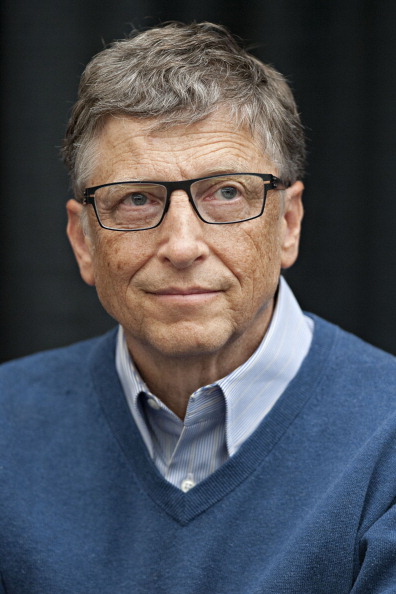
Bill Gates, long an avid reader, attended the TED conference again this year and continued his tradition of recommending books to fellow attendees.
1. Business Adventures, by John Brooks
Warren Buffett recommended this book to me back in 1991, and it’s still the best business book I’ve ever read. Even though Brooks wrote more than four decades ago, he offers sharp insights into timeless fundamentals of business, like the challenge of building a large organization, hiring people with the right skills, and listening to customers’ feedback. (Here’s a free download of one of my favorite chapters, “Xerox Xerox Xerox Xerox.”)
2. The Bully Pulpit, by Doris Kearns Goodwin
Historian Doris Kearns Goodwin studies the lives of America’s 26th and 27th presidents to examine a question that fascinates me: How does social change happen? Can it be driven solely by an inspirational leader, or do other factors have to lay the groundwork first? In Roosevelt’s case, it was the latter. Roosevelt’s famous soft speaking and big stick were not effective in driving progressive reforms until journalists at McClure’s and other publications rallied public support.
The eloquent essayist Eula Biss uses the tools of literary analysis, philosophy, and science to examine the speedy, inaccurate rumors about childhood vaccines that have proliferated among well-meaning American parents. Biss took up this topic not for academic reasons but because of her new role as a mom. This beautifully written book would be a great gift for any new parent.
4. Making the Modern World, by Vaclav Smil
The historian Vaclav Smil is probably my favorite living author, and I read everything he writes. In this book, Smil examines the materials we use to meet the demands of modern life, like cement, iron, aluminum, plastic, and paper. The book is full of staggering statistics. For example, China used more cement in just three years than the U.S. used in the entire 20th century! Above all, I love to read Smil because he resists hype. He’s an original thinker who never gives simple answers to complex questions.
5. How Asia Works, by Joe Studwell
Business journalist Joe Studwell produces compelling answers to two of the greatest questions in development economics: How did countries like Japan, Taiwan, South Korea, and China achieve sustained, high growth? And why have so few other countries managed to do so? His conclusion: All the countries that become development success stories (1) create conditions for small farmers to thrive, (2) use the proceeds from agricultural surpluses to build a manufacturing base that is tooled from the start to produce exports, and (3) nurture both these sectors with financial institutions closely controlled by the government.
6. How to Lie with Statistics, by Darrell Huff
I picked this one up after seeing it on a Wall Street Journal list of good books for investors. It was first published in 1954, but it doesn’t feel dated (aside from a few anachronistic examples—it has been a long time since bread cost 5 cents a loaf in the United States). In fact, I’d say it’s more relevant than ever. One chapter shows you how visuals can be used to exaggerate trends and give distorted comparisons. It’s a timely reminder, given how often infographics show up in your Facebook and Twitter feeds these days. A great introduction to the use of statistics, and a great refresher for anyone who’s already well versed in it.
This article originally appeared on Farnam Street.
Join over 50,000 readers and get a free weekly update via email here.
More Must-Reads from TIME
- How Donald Trump Won
- The Best Inventions of 2024
- Why Sleep Is the Key to Living Longer
- Robert Zemeckis Just Wants to Move You
- How to Break 8 Toxic Communication Habits
- Nicola Coughlan Bet on Herself—And Won
- Why Vinegar Is So Good for You
- Meet TIME's Newest Class of Next Generation Leaders
Contact us at letters@time.com